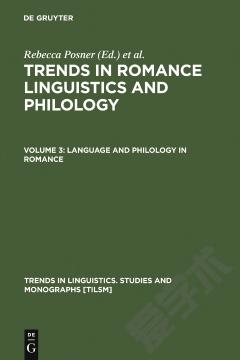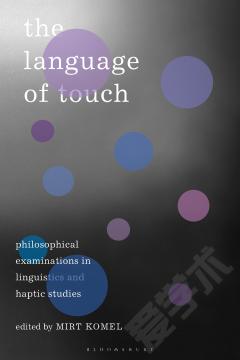Italic and Romance —— Linguistic studies in honor of Ernst Pulgram
----- 斜体和浪漫:为纪念恩斯特普尔格拉姆而进行的语言研究
Reviewed by BENGT L53FSTEDT, UCLA It is convenient to have here Pulgram's complete bibliography, as well as many articles by American and European scholars. In contrast to many Festschriften, this one has a common theme, namely Latin anld Romance languages; this reflects the chief object of Pulgram's own research and teaching. While the thematic coherence of the different contributions is an advantag:, it must be said that their quality and interest varies a good deal. For example, G. M. Messing's 'Latin vs. Neo-Latin: Clues to contrasting structure' (59-67), is of a more popular than scholarly nature, and should have been published in a newspaper rather than in a scholarly volume. Presumably readers of this book already know that 'the important national languages of western Europe ... have been greatly influenced by the world of Latin antiquity' (60), and that it would be more difficult to translate many everyday phrases and expressions of English or German into Classical Latin than into the Neo-Latin used by the Pope. J. Peter Maher's 'The source of Italian tardi, with notes on the implications of lexicalization for the transformational-generative paradigm' (113-20), is very ambitious, and his discussion of transfcrmational grammar is interesting, but the explanation of tardi on which it is all based remains uncertain. La. tarde is an adverb which means 'late'; the Italian word is not, as expected, *tarde: and the question is how to explain the final i. Some scholars have derived it from La. *tardim (which, however, is not only unattested but improbable, since -imn was not a productive adverbial ending in Vulgar Latin), or by analogy with other Italian adverbs in -i (e.g. fitori <,foris 'outside'). Maher assumes that 'tardi (adverb) is simply a lexicalization of the masculine plural adjective tardi, "borrowed", or extended, from predicative positions where its reading was ambiguous' (117). He could have supported this theory by mentioning that Latin temporal adjectives like diurnus and noctuabundus are often used predicatively, instead of the corresponding adverbs (see E. L6fstedt 1933:370-71). But why should the nominative PLURAL masculine be taken over, rather than the singular? Maher mentions, as support for his theory, Fr. volontiers 'willingly' < vol/untarius; but here it is the singular. not the plural, which is continued. The same is true of other instances where adjectives become adverbs (see Brugmann 1910). Among the lightweight papers can also be mentioned H. Ludtke, 'The origin of the Italian plural formative -e: A methodological issue' (121-5), which cites some literature on a vexed question, but offers nothing new. Among the valuable contributions are the following. 0. Szemerenyi, 'Latin verbs in -uo, -uiere' (9-32), is a full and well-documented investigation. H. Meier, 'Fortschritt und Riickschritt in der etymologischen Forschung, als Beispiel: Die Herkunft der romanischen Familie von ital. tovaglia' (103-11), is important for its last reminder: 'Auch in der von Natur diachronischen Etymologie spielt ein schlichter, unhistorischer Fortschrittsglaube oft genug seine verfangliche Rolle' (111). Meier here tries to rehabilitate the old etymology tovaglia 'tablecloth' < togalia. G. Rohlfs, 'Ratoromanisch' (161-9), offers new material consisting of proverbs in French, Italian, and the Rhaetian dialects, which allow the reader to follow the change from Italian to French via Rhaetian. In Rhaetian klap or krap 'stone' Rohlfs sees 'ein vorr6misches Reliktwort'; or could it be Germanic'? GIARI, SUSAN. 196 . Roman freedm n during the la e Republic. Oxford: University 216
{{comment.content}}








 京公网安备 11010802027623号
京公网安备 11010802027623号